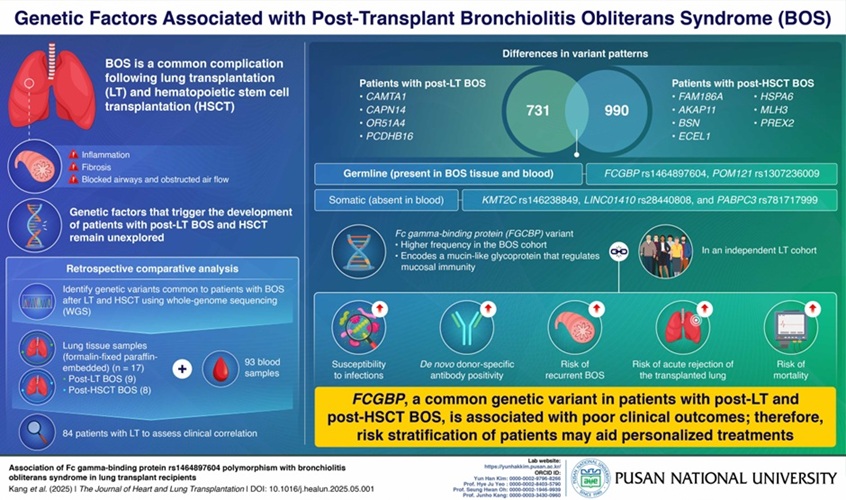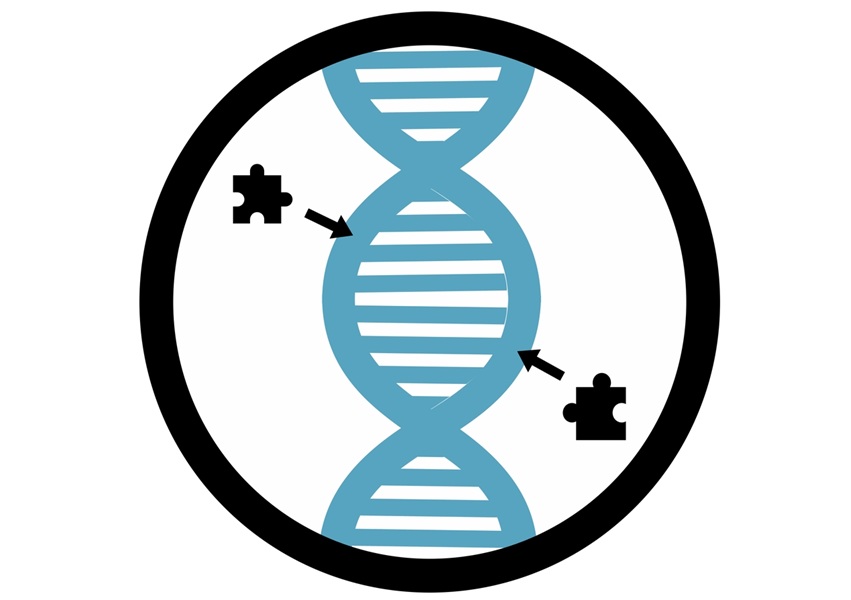Genetic Test Could Predict Poor Outcomes in Lung Transplant Patients
Posted on 02 Jul 2025
Organ transplantation has dramatically transformed the management of patients suffering from organ failure. Yet, the immune system of the recipient often perceives the transplanted organ as a foreign entity, triggering a defensive reaction that can result in severe complications. Bronchiolitis obliterans syndrome (BOS) is one such complication that commonly occurs after lung transplantation (LT) and hematopoietic stem cell transplantation (HSCT). BOS is marked by airway narrowing, fibrosis, and inflammation in the lungs, which leads to respiratory issues and poor graft survival. While immune responses and overlapping pathological and morphological traits of post-LT and post-HSCT BOS have been thoroughly investigated, the reasons why only some patients develop BOS and the genetic factors that might influence individual responses to the diseases and treatments remain unclear. A new study now shows that genetic testing can help identify patients at greater risk of developing complications after transplantation, allowing for preventive action to be taken earlier.
A research team at Pusan National University (Busan, South Korear) examined genetic variations in lung tissues obtained from patients who developed BOS after undergoing LT or HSCT. They utilized whole genome sequencing (WGS) on DNA extracted from lung tissue and blood samples from these patients, then assessed the data for genetic variants such as single-nucleotide polymorphisms (SNPs), insertions and deletions, and base substitutions. SNPs were found to be the most prevalent variant in both groups, with 731 identified in patients with post-LT BOS and 990 in those with post-HSCT BOS. The mutational burden was also higher in the post-HSCT BOS group compared to the post-LT BOS group. Mutations in the FCGBP and POM121 genes were found in both patient groups and were present in both the lung tissue and blood samples.

The FCGBP gene variant was chosen for further analysis due to its high prevalence among BOS patients and its suspected involvement in controlling mucosal immunity within the lungs. Significantly, individuals carrying the FCGBP variant had a greater likelihood of experiencing recurrent BOS, infections, and acute rejection events, which were associated with increased levels of donor-specific antibodies—factors that together raise the overall disease burden and mortality risk. According to findings published in The Journal of Heart and Lung Transplantation, screening for the FCGBP variant could enable clinicians to pinpoint high-risk individuals and initiate tailored immunosuppressive treatments at the right time. Additionally, gaining a clearer understanding of how FCGBP functions in immune regulation could support the development of new therapies aimed at protecting lung tissue and enhancing long-term outcomes for transplant recipients.
“By testing for this genetic variation before or shortly after the transplant, doctors can adjust the treatment plan, monitor patients more closely, and take preventive steps to reduce the risk of complications like BOS,” said Assistant Professor Yun Hak Kim, who led the research. “In the future, this gene variant could also be screened in routine blood tests to track transplant health and guide long-term care more effectively.”
Related Links:
Pusan National University













